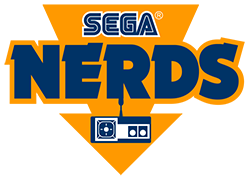
SEGA’s legacy in online gaming and potential rebirth
Recognized around the world, Sega was once the premier game console that had children and adolescents alike around the globe eager to come home from school to play the latest releases. From the immensely successful Sonic the Hedgehog series to groundbreaking features like Mortal Kombat and Eternal Champions or the all-too-fun NBA Jam, Sega was a forerunner in the industry of console gaming with innovative graphics utilizing cutting-edge software and a constant flux of fresh, new games.
However, lesser known is Sega’s delve into casino gaming, and its ultimate failure to capitalize on the emerging markets of online casino gaming as well and resurgence in the West after a slump in game sales, as well as others, like EssayShark. Despite Sega’s enjoyed success in the land based gaming throughout much of the 1990s, failure to keep up appearances and poor business decisions ultimately led to disinterest of once hardcore fans of the brand. Assuming loyal fans would tackle online gaming perhaps too early pushed away a market potential that the company has long since been attempting to regain.
Rocky beginnings
It all started in 1994, when Sega launched its Poker Face Paul series – a release of four card-based games on the Game Gear platform. Although Game Gear and its competitor the Game Boy from Nintendo were immensely successful, the cracks of Sega’s game development were beginning to show.
Poker Face Paul, which featured popular casino games like blackjack, poker, video poker, and even household favorites like gin and blackjack, received overwhelmingly negative reviews from game aficionados and critics alike, a the company was panned for release the series synonymous with poor graphics and sounds. Players released that they could just as easily, and much more affordably play with a real deck of cards instead of cough up the dough for the Poker Face Paul series.
Despite negative feedback, Sega was not done with its attempt at Las Vegas-style casino gaming. As the millennium approached, the company faced a massive drop in revenue in lieu of trying to keep the brand invigorated and up to snuff with the competition, which brings us to our next flop.
Handheld vs. Halo
In late 2005, Sega released the Sega Casino, for Nintendo DS of all things, in hopes of riding the wave of the newly emerging casino gaming craze. What was beginning to be a more than profitable market, the Sega brand failed to realize fully the objectives it had set for itself as it pushed the boundaries. Players simply disinterested, and the overwhelming majority were craving more intense style gaming such as the released Halo series for the Xbox or GTA series for Playstation. Games were becoming increasingly inventive and there was little that a tiny handheld casino game could do to quell such appetites. Sega eventually had to pull the plug on the release, and today you would be lucky to find it on Ebay or Amazon with any sort of description.
SEGA Casino
The final nail in the coffin came in 2008, in the form of SEGA Casino. After forming a successful partnership with already established online casino software provider Playtech, Sega’s top brass set out to not only push a new online gambling platform, but also the real money card product SEGAPoker with a double release by the end of 2009.
The company offered a real money casino an exciting range of more than 125 different games from popular table and card games to classic slot machines and online video slots. Despite marketing massive progressive jackpots mixed with live dealer games, and themes using flagship titles like House of the Dead and Virtua Fighter the site was only accessible to players in regions where online gambling was legal. However, nearly a decade ago, online gambling legislation worldwide was still in its infancy and an estimated market of nearly $25 billion in gross gaming revenue Sega once again dropped the ball, and by late September 2010 had to shut the doors.
Resurrection of a giant
The reason for Sega’s less-than-glossy finish for online gambling boils down to one critical factor: timing. The company had simply prematurely fired the gun, and with guns blazing, the effort burned out just as fast as it had emerged. Another contributing factor was the meteoric rise of mobile technology with smartphones and faster internet speeds.
Interestingly enough, Sega has not sang its proverbial swan song, and the company still has fight left in it. Despite being a “senior” brand for lack of a better word, the gaming giant is a veteran in the game. With the resurgence of retro-gaming platforms such as Classic Mini-Nintendo and arcade games or the launch of the Sega Shop featuring throwback merchandise such as Streets of Rage and Shinobi series, perhaps Sega will resurrect from the ashes into the glorious phoenix that it once was, and enter the online gambling market anew.





